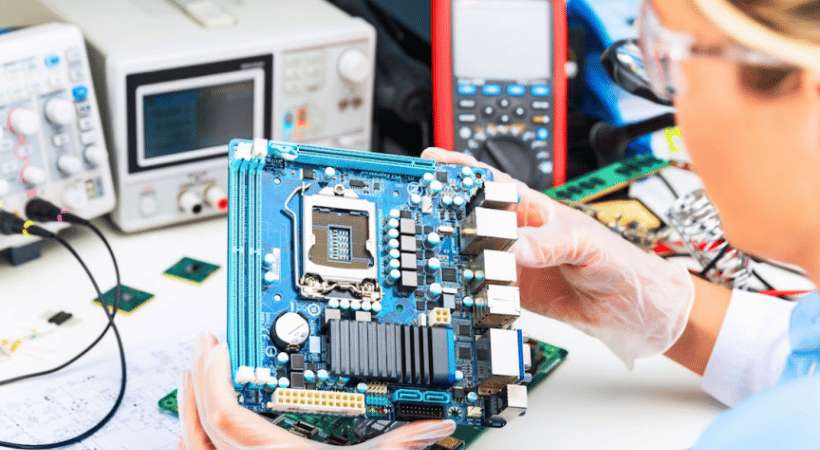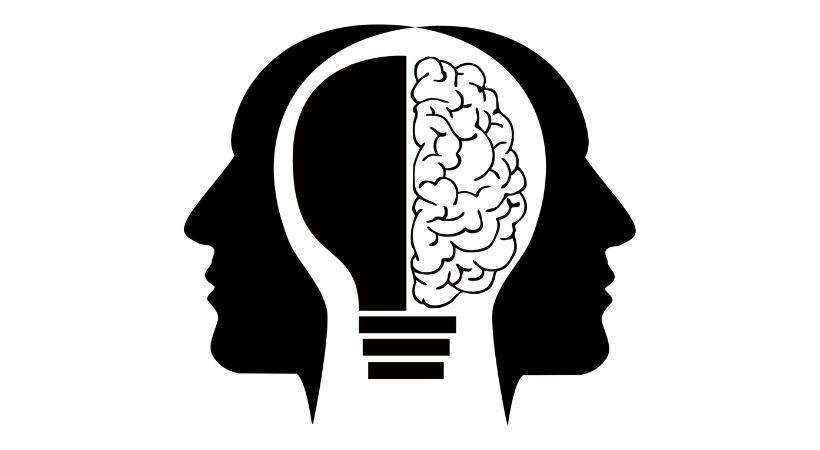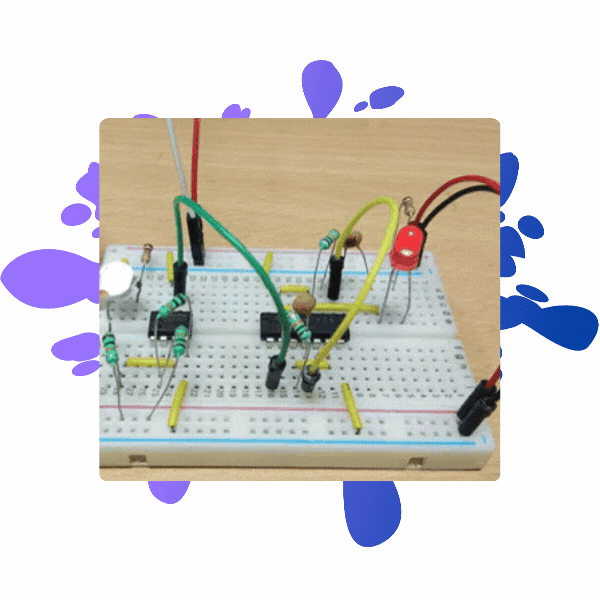Electronics is the branch of science that deals with the study and application of the flow of electrons through semiconductor devices.
In my experience, it is easy to define electronics in the following way:
Electronics is the study of using various circuit components to make electronic circuits that perform a certain function or task. For example, we make a TV remote circuit which performs the function of changing the TV channels. Or we can make a circuit for flashing LEDs that turn ON and OFF the LEDs.
In this article, you’ll learn what electronics is and its simple definition, which will clear your doubts.
Electronics
You know
The end goal of electronics is to make electronic circuits. These circuits can be DIY circuits used for learning.
They can also be used in various electronic products (for example, mobile) to solve a specific problem (for example, mobile is used in connecting people across the globe) for humans – making their lives easier. To make circuits you need to learn the definition and basic concepts of electronics.
So,
Electronics is the name of making useful circuits using various components – it is that simple
If you pay attention, you will discover that the word electronics is somewhat similar to the word electrons.
Electrons are negatively charged subatomic particles that revolve around the nucleus of an atom.
The special property of electrons is upon the presence of external energy they can free themselves from the atom and can freely move and flow within the material structure.
This flow of free electrons is very important and the discovery of this led to the beginning of a new engineering field called Electronics.
Simply we can say that electronics is the study of the flow of electrons, and that is the reason we use the word electronics.
But this is not a complete definition because the question arises in which material we are guessing the flow of electrons.
So to understand the complete definition, we need to first know some basic electrical classification of materials.
Material classifications
Just so you know up till now we have understood half of the definition, we somehow know that electronics has something to do with the movement of electrons.
Attention Beginners
Get free Kindle copy of “Make Your First Electronic Circuit” on coming 26 & 27 Feb
- A step by step book to learn electronic basics by making electronic circuits; no experience needed!
Now on the basics of electrical properties of materials, the materials are classified into three categories.
- Conductors
- Insulators
- Semiconductors
1. Conductors
When we talk about conductors, we mean the materials that can pass electricity, i.e., electrons can easily flow through them.
As you should know, whenever there are no hurdles for electricity to flow, it means there is low or no electrical resistance (shortly represented by the word R).
Resistance is the opposition property of the material that electrons face while passing through the material.
In other words, conductors are low or no electrical resistance materials that we see all around. Silver, copper, gold, and iron are some examples of conductor materials.
Copper is mostly used because it is inexpensive.
Now I want you to write it down, whenever we talk about and study the flow of electrons in conductors we are mostly doing electrical engineering, not electronics engineering.
Moving towards another category, insulators.
2. Insulators
These are the materials that offer very high or infinite electrical resistance (R). This means the flow of electrons or electricity is nearly impossible, and that is the reason we use insulators for protection purposes.
Insulators are used to stop the flow of electricity. You can say it is used for protection. That is why you see the plastic coating on all electrical wires.
Now the last one is semiconductor.
3. Semiconductors
These materials lie somewhat in between the conductors and insulators. They partially allow the passage of electricity and partially don’t.
In these types of materials we add impurities to change their electrical properties, this process is called doping.
The property that makes semiconductors so special and valuable is we can control the flow of electrons through them using the doping process. This control has made today’s modern world possible.
Electronics definition
After learning about materials, now we are in a position to give a simple and proper definition of electronics.
Although I could have written this definition straight away, it would have been better to explain the concepts that will help you learn the correct meaning of electronics.
We can simply define electronics as, “The field of science (more specifically Physics) in which we study and analyze the flow of electrons through semiconductor devices to create electronics circuits that are solutions (perform a specific function or task) for human problems”
It should be clear to you that in electronics we study semiconductor devices, we study their behaviors so that we have a better understanding of their applications.
The main goal of electronics engineering is to use semiconductor materials to build systems that solve the problems we face as humans from all walks of life i.e., health care, military, communications, and much more.
Now you must be wondering what types of elements are semiconductors. Let’s discuss them.
Semiconductor materials: Silicon and Germanium
There are two main semiconductor elements, one is Silicon (Si) and the other is Germanium (Ge). They are the most widely used semiconductor materials.
Both materials are being used in various industries. The Ge was one of the first materials used in the development of semiconductors but has been largely replaced by Si in many applications.
Si is the better one because it stays stable for a wide range of temperatures compared to that of Ge. But it doesn’t mean that Ge is not used, it is still considered valuable in certain areas.
China has most of Si and that’s the reason they are leaders when it comes to electronics manufacturing. Even big brands like Apple use their services when it comes to electronics manufacturing.
I would like to know if you have ever heard of electronics engineering. If not, let me answer your question.
Electronics engineering
Electronics Engineering is the pure application of electronics. It primarily focuses on the design, development, testing, and manufacturing of electronic devices and systems.
It is a very interesting field to study.
You will be exposed to so many magical things that are happening across the globe. You will be able to design your solution to global problems.

In electronic engineering, we use semiconductor materials to make devices to design circuits and systems that serve an issue or try to solve a problem.
Following are the basic components we work with in electronics engineering to make circuits:
- Resistor
- Capacitor
- Diode
- Transistors
- Switches
- LEDs
- Inductors
- Integrated circuits
Beginners often get confused about electronics and electrical. Both fields are identical, and it’s normal at early stages to find it challenging to differentiate both.
Difference between electronics and electrical
Electrical engineering is the first and the oldest engineering discipline. In the early days, this field was mainly concerned with the generation, distribution, and transmission of high power and voltage across the world.
But with time as new research emerged and people started talking about semiconductors a new subfield of this large discipline was introduced -called electronics engineering.
Now following are a few basic differences that you should keep in mind.
- Electronics is the sub-field of Electrical Engineering.
- When we deal with the flow of electrons through semiconductors we are working with electronics i.e., diode and transistor circuits.
- But when we deal with the flow of electrons through conductors, we are working with electrical terminologies and techniques.
- Electronics are mostly low voltage while in electrical we deal with high voltages and currents.
The above are the basic differences. If we go a little advanced we can say in electronics engineering we can program and design smart circuits. While electrical circuits are mostly high voltage and very dangerous to work with.
Different fields in electronics
There are many fields of electronics and each field has its applications.
Following are some fields that I think are very exciting. I believe the demand for experts in these fields will be very high.
1. Internet of Things (IoT)
IoT stands for the Internet of Things. In this field of electronics, we try to connect every possible electronic device to the internet so that we can control and interact with it any time, and anywhere we want.

you can control your home appliance even if you are not at home through this technology just using the internet.
3. Artificial intelligence (AI) and machine learning (ML)
AI and ML are transforming electronics by enabling systems to learn from data, adapt, and make intelligent decisions.

These technologies are embedded in various electronic devices, from smartphones to autonomous vehicles, enhancing their functionality and user experience.
2. Intelligent robots
With artificial intelligence on the horizon, we can make intelligent robots that can learn all themselves and take the right actions just like humans do.

These robots are designed to adapt to their environments, interact with humans, and solve complex problems, making them valuable in various industries, from manufacturing to healthcare.
Future careers
If someone is really looking to get into learning electronics, this is the right time. The world is going for 6G and Artificial Intelligence (AI). The electronics design engineers will be in high demand. These jobs are high-paying.
People are deploying Machine Learning algorithms on embedded hardware, especially on Arduino. This means a freelance job (or corporate job) as an Arduino coder or embedded designer will always be in demand.
It is not necessary to be a freelancer but just so you know the world is going digital and that corporatize lifestyle and conventional office thing is no longer fun.
Where to begin with electronics
There are so many ways you can get started with electronics. Everything is available online these days. I believe if you are interested in this subject from the heart you will find ways, people, and everything you need to succeed.
Everyone is different, and I can’t say for sure which way would be effective for everyone to get started with electronics.
But with limited experience and knowledge. I found that if someone starts to learn the basic terms and concepts of electronics, then start learning about the various electronic components, then by using those terms and components start making basic circuits.
These basic circuits will give you the confidence to make more complex circuits in the future. And while you are making circuits you will make mistakes.
Learning from these mistakes and troubleshooting the circuits you make you an expert in the long learn.
In summary, the following are my steps to start learning electronics.
- Step 1: Introduction to basic concepts and terms of electronics and circuits
- Step 2: Understanding and working with various electronic components
- Step 3: Start making basic circuits
- Step 4: Make mistakes
- Step 5: Troubleshoot those mistakes and learn from them
These steps may not be ideal. But I believe it is a very strategic and effective way to start.
Conclusion
To summarize the simple definition of electronics, electronics is nothing but the study of the flow of electrons through semiconductor devices.
Electronics is a subfield of electrical engineering in which we study how to use various components to make useful circuits.
Definition of electronics
You can think of electronics engineering as the applied version of electronics. In electronics engineering (a sub-field of electrical engineering) we apply all the concepts of electronics to make basic and complex circuits.
There are so many subfields of electronics like embedded electronics, industrial electronics, power electronics, IoT, and so many more.
The question is how to start learning electronics because it is so promising field in the future. And I believe the demand for these experts will always be increasing.
Ideally, there are many ways to start with this field: But following are some strategic steps one can follow.
- Step 1: Learning about the basic electronics concepts and terms
- Step 2: Learning the basics of electronic components
- Step 3: Start making basic circuits
- Step 4: Make mistakes
- Step 5: Learning how to troubleshoot those mistakes
That’s set. Thank you, stay blessed.
**If you are interested to learn more about electronics in details you would find these beginner electronics book very helpful.




Thanks
Welcome 🙂
Hi
salaam mr Abbas
i just read ur article for beginners which is very useful for me i jus step in basic electronic and i hope u will carry on this type of article which helps me to learn basic
thank you
Welcome 🙂